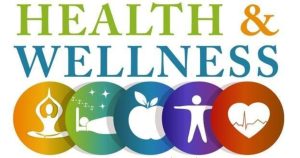Aging is a natural and inevitable part of life’s journey, a process that brings with it wisdom, experience, and the opportunity to embrace the golden years with vitality and grace. In recent years, the quest for extending longevity and aging gracefully has led to remarkable developments in science, nutrition, and senior care. This comprehensive guide delves into the multifaceted realm of Aging and Longevity, exploring anti-aging treatments, longevity diets, brain health, and holistic approaches to elderly care and senior living options. It is a celebration of aging as a unique and enriching phase of life, offering insights and strategies to help individuals thrive in their later years.
Table of Contents
ToggleAnti-Aging Treatments and Products
Defying Time: The Pursuit of Youthful Vitality
The desire to slow down the aging process has given rise to a vast array of anti-aging treatments and products, promising to rejuvenate the body and mind.
The Science of Aging
Understanding the biological mechanisms behind aging and how factors like genetics, cellular damage, and inflammation contribute to the aging process.
Cosmetic Interventions
Exploring non-invasive and surgical cosmetic procedures, such as Botox, fillers, and facelifts, and their role in enhancing appearance.
Nutraceuticals and Skincare
Highlighting the role of dietary supplements, antioxidants, and skincare routines in promoting healthy skin and combating signs of aging.

Longevity Diets and Lifestyle Choices
Nourishing Longevity: The Role of Nutrition and Habits
Longevity diets and lifestyle choices play a pivotal role in promoting physical, holistic health and mental well-being in the later years.
Mediterranean Diet and Blue Zones
Examining the Mediterranean diet and the lifestyle practices of Blue Zones, areas known for the high concentration of centenarians, and their impact on longevity.
Fasting and Caloric Restriction
Exploring the science behind intermittent fasting and caloric restriction and how these practices may promote longevity and cellular health.
Exercise and Mental Agility
Discussing the importance of physical activity, mental stimulation, and social engagement in maintaining cognitive function and overall vitality.
Brain Health and Cognitive Longevity
Nurturing the Mind: Preserving Cognitive Function
Brain health is a vital component of aging well, with strategies to support cognitive longevity gaining prominence.
Cognitive Resilience
Understanding the concept of cognitive resilience and how it relates to maintaining mental acuity and reducing the risk of neurodegenerative diseases.
Memory Enhancement
Exploring techniques and practices, such as brain-training exercises and dietary choices, that may help enhance memory and cognitive function.
Social and Emotional Well-Being
Highlighting the importance of social connections, emotional well-being, and stress management in preserving cognitive health.
Elderly Care and Senior Living Options
Compassionate Aging: Holistic Senior Care
As individuals age, addressing their physical, emotional, and social needs becomes paramount, leading to innovative approaches to elderly care and senior living.
Home-Based Care vs. Senior Communities
Comparing the benefits and considerations of home-based care and senior living communities, including independent living, assisted living, and nursing homes.
Palliative and Hospice Care
Discussing the role of palliative and hospice care in providing comfort, dignity, and support to individuals with advanced illnesses.
Integrative Approaches
Exploring holistic and integrative healthcare practices, such as music therapy, art therapy, and acupuncture, in enhancing the well-being of seniors.

Conclusion
Aging, far from being a journey of decline, can be a remarkable and fulfilling phase of life when approached with wisdom, intention, and care. In the pursuit of longevity and graceful aging, we have witnessed remarkable advancements in science, nutrition, and senior care, offering a wealth of opportunities for individuals to thrive in their later years.
From the diverse landscape of anti-aging treatments and products that promote physical rejuvenation to the wisdom of longevity diets and lifestyle choices that nourish the body and mind, aging can be a time of vitality and personal growth. Additionally, the importance of brain health and cognitive longevity reminds us of the value of mental acuity and emotional well-being.
Moreover, the field of elderly care and senior living options has evolved to provide compassionate and holistic approaches that honor the unique needs of older individuals. Whether choosing to age in place, explore senior living communities, or access specialized palliative and hospice care, there are options that prioritize dignity, comfort, and quality of life.
As we embark on this journey through the realms of aging and longevity, let us celebrate the wisdom that comes with age, nurture our physical and mental well-being, and embrace compassionate care options that allow us to savor life’s precious moments. Aging, when approached holistically, can be a tapestry of rich experiences, wisdom, and enduring vitality—a true testament to the art of aging gracefully.
Frequently Ask Questions
1. What are signs of brain problems?
- Signs of brain problems can vary depending on the specific issue but may include memory problems, cognitive decline, headaches, seizures, changes in mood or behavior, loss of coordination, and difficulty with speech or language.
2. What are brain problems?
- Brain problems refer to a wide range of conditions and disorders that affect the brain’s structure or function. These can include neurodegenerative diseases (e.g., Alzheimer’s), traumatic brain injuries, infections, tumors, and mental health disorders.
3. How do you check brain health?
- Brain health can be assessed through various methods, including cognitive tests, brain imaging (e.g., MRI or CT scans), blood tests to check for specific markers, and evaluation by a healthcare professional.
4. What causes memory loss?
- Memory loss can be caused by various factors, including aging, Alzheimer’s disease, other forms of dementia, certain medications, stress, sleep disturbances, and medical conditions affecting the brain.
5. What are the top 3 brain diseases?
- The top three brain diseases are Alzheimer’s disease, stroke, and epilepsy. These conditions have a significant impact on brain health and function.
6. What are the 4 habits that damage your brain?
- Four habits that can potentially damage the brain are excessive alcohol consumption, smoking, lack of physical activity, and a diet high in unhealthy fats and sugars.
7. What affects the brain?
- Many factors can affect the brain, including genetics, lifestyle choices (diet, exercise, and sleep), stress, traumatic experiences, environmental toxins, and certain medical conditions.
8. What are the 7 ways to keep your brain healthy?
- Seven ways to keep your brain healthy include staying mentally active, eating a brain-boosting diet, exercising regularly, getting quality sleep, managing stress, staying socially connected, and avoiding harmful habits like smoking and excessive alcohol consumption.
9. Which is the best fruit for the brain?
- Berries, especially blueberries, are often considered excellent for brain health due to their high levels of antioxidants and anti-inflammatory properties. Other fruits like oranges, apples, and bananas also provide essential nutrients for the brain.
10. Which vitamin is good for the brain?
Several vitamins are important for brain health, including vitamin B complex (B6, B9, and B12), vitamin D, vitamin E, and vitamin C. These vitamins support cognitive function and protect brain cells.
11. Can stress cause brain damage?
Chronic and severe stress can have a negative impact on the brain over time, potentially leading to brain changes associated with cognitive decline and mental health issues. It is essential to manage stress effectively.
12. What is good for weak brain?
To support brain health, it’s essential to maintain a balanced diet rich in nutrients, engage in regular physical and mental exercise, get enough sleep, manage stress, and avoid harmful substances like excessive alcohol and tobacco.
13. What are 5 signs your brain is in trouble?
Five signs that may indicate your brain is facing issues include memory problems, sudden changes in mood or behavior, difficulty with coordination or balance, frequent headaches, and unexplained cognitive decline.
14. How can I test if I have brain damage?
Diagnosis of brain damage typically involves medical evaluation, including neurological exams, brain imaging (e.g., MRI or CT scans), and cognitive tests performed by healthcare professionals.
15. How can I improve my brain health?
You can improve brain health by adopting a healthy lifestyle that includes a balanced diet, regular exercise, mental stimulation, adequate sleep, stress management, and avoiding harmful habits.
16. What causes poor brain?
Poor brain health can result from various factors, including inadequate nutrition, lack of physical and mental exercise, chronic stress, sleep deprivation, and exposure to toxins or substances harmful to the brain.
17. What drink improves memory?
Drinks like green tea, which contains antioxidants and compounds that support brain health, may help improve memory and cognitive function. Additionally, staying hydrated with water is essential for overall brain function.
18. What is the health of the brain?
Brain health refers to the overall well-being and functioning of the brain, including cognitive abilities, emotional well-being, and the absence of neurological disorders or diseases. Maintaining brain health is crucial for a high quality of life.
More Stories
From Fear to Freedom: Understanding and Managing Panic Attacks
What Are Panic Attacks? Panic attacks are sudden periods of intense fear or discomfort that peak within minutes. These episodes...
Unlocking a New You: The Complete Guide to Hair Transplant in Dubai
In recent years, Dubai has become a hotspot for medical tourism, particularly for cosmetic procedures. Among these, hair transplants have...
Batana Oil Benefits: A Hidden Gem for Hair and Skin Care
Batana oil, often referred to as "liquid gold" for hair and skin, is one of nature’s best-kept secrets. Extracted from...
How to Choose the Best Steroid Cycles for Cutting Safely and Effectively
The key to getting ultra lean is the best steroid cycles for cutting. The cutting phase is one at which...
Revolutionizing Addiction Recovery: The Rise of Virtual Suboxone Treatment
Addiction treatment has long been a challenge for both patients and providers, requiring access to specialized care and consistent support....
Optimize Your Wellness with Health Hub Singapore: The Ultimate Health Resource
In a rapidly evolving world where health and well-being are increasingly prioritized, having access to a trusted source of quality...


